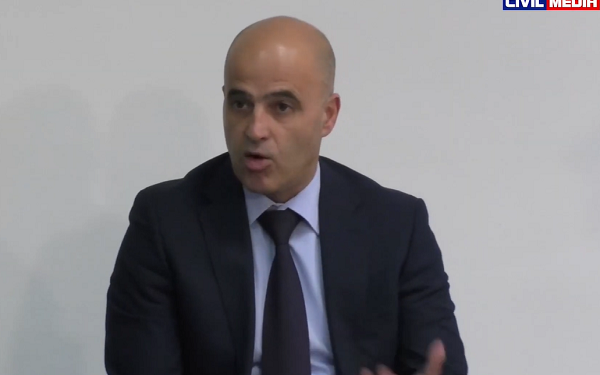It’s easy to increase pay in the public sector – the trade union will call for it, and the government will approve it, taxpayers will pay for it, but they also need to get a higher level of service when paying for higher salaries, said Prime Minister Dimitar Kovachevski on Thursday, reports MIA.
“Talks with the unions and representatives will lead us to a solution that will include pay increase in the whole public sector. I urge teachers to get back to schools. I always stand by them, which is why we’ve opened a dialogue with the Union for Education, Science and Culture (SONK), which is in constant continuity, except when they decide to strike without completing a dialogue which has legal deadlines. I’m convinced we’ll reach a solution, not just a short-term one, but also a dignified long-term solution for teachers and other public sector employees,” Kovachevski told reporters on Thursday after an event to launch reconstruction activities at Partizan sports hall in Karposh.
He said a joint solution can be found, but SONK needs to be honest before its members that the government has been open to negotiations since day one, and talks are not meant to be led under blackmail, but economic and social dialogue. “We increased the minimum wage and there is a 6-month legal deadline to coordinate salaries. This deadline has not expired yet. SONK started their strike without opening a dialogue within these six months, and I believe it has blinded the teachers,” Kovachevski said.
He noted that at Wednesday’s press conference, SONK’s president had spoken on the articles of the collective agreement and lawful wage payouts during a strike. However, the PM said that he hadn’t been fully honest, failing to mention the correct articles and to finish elaborating on all articles regarding those legal solutions.
“That is what needs to be done. We said we’d discuss it, and these are the government’s conclusions, that we will talk with the representative union in regards to increasing the salaries in the public sector and in regards to implementing a new methodology in the future of wages in the public sector. But, even in terms of opening a process to make a new wage law which will remove a number of inconsistencies in the public sector and opening a reform process in the public sector, because it counts over 132 thousand employees paid by the private sector, and if wages increase, which they should, we need to provide a better service to the citizens paying those wages,” Kovachevski said.
















